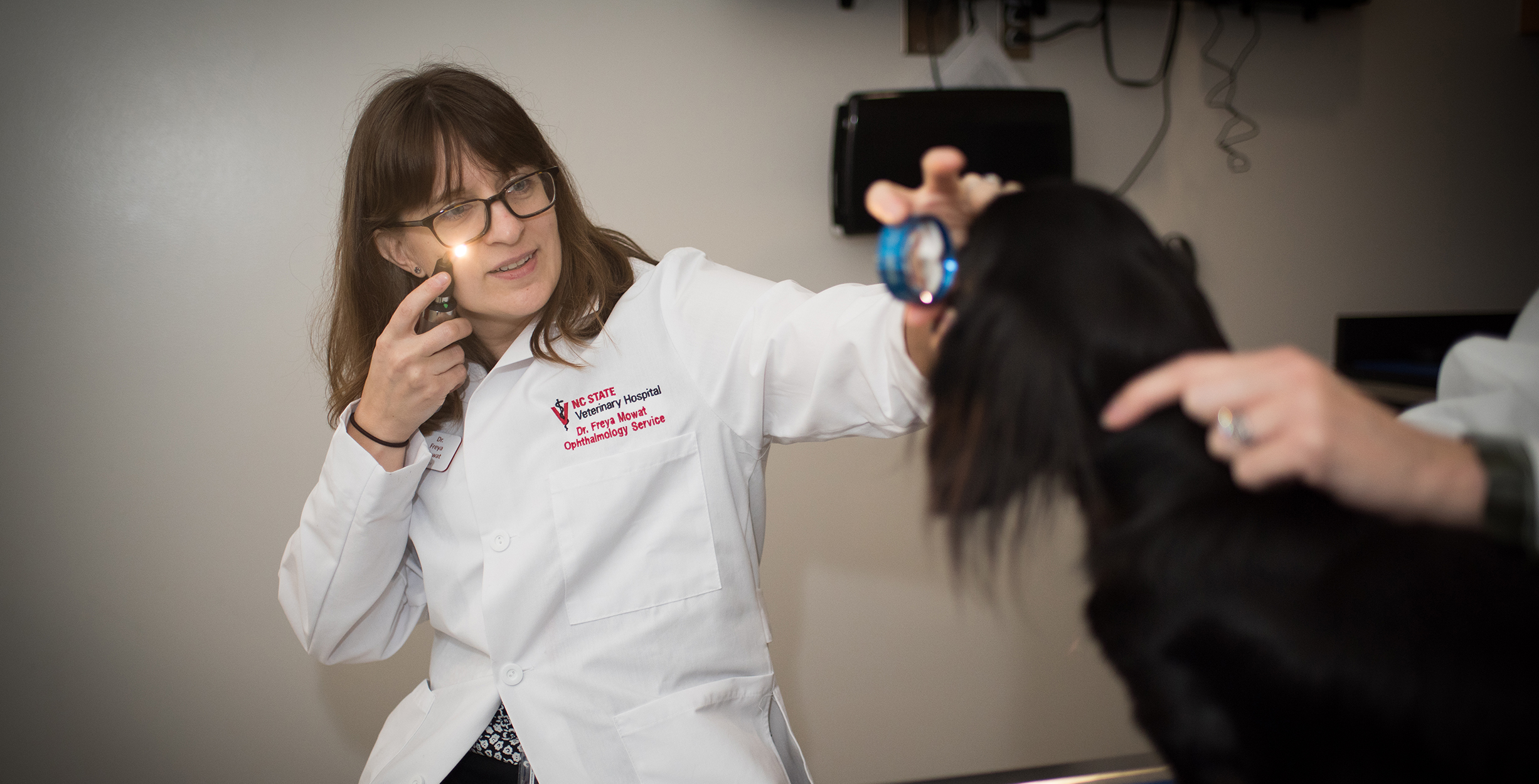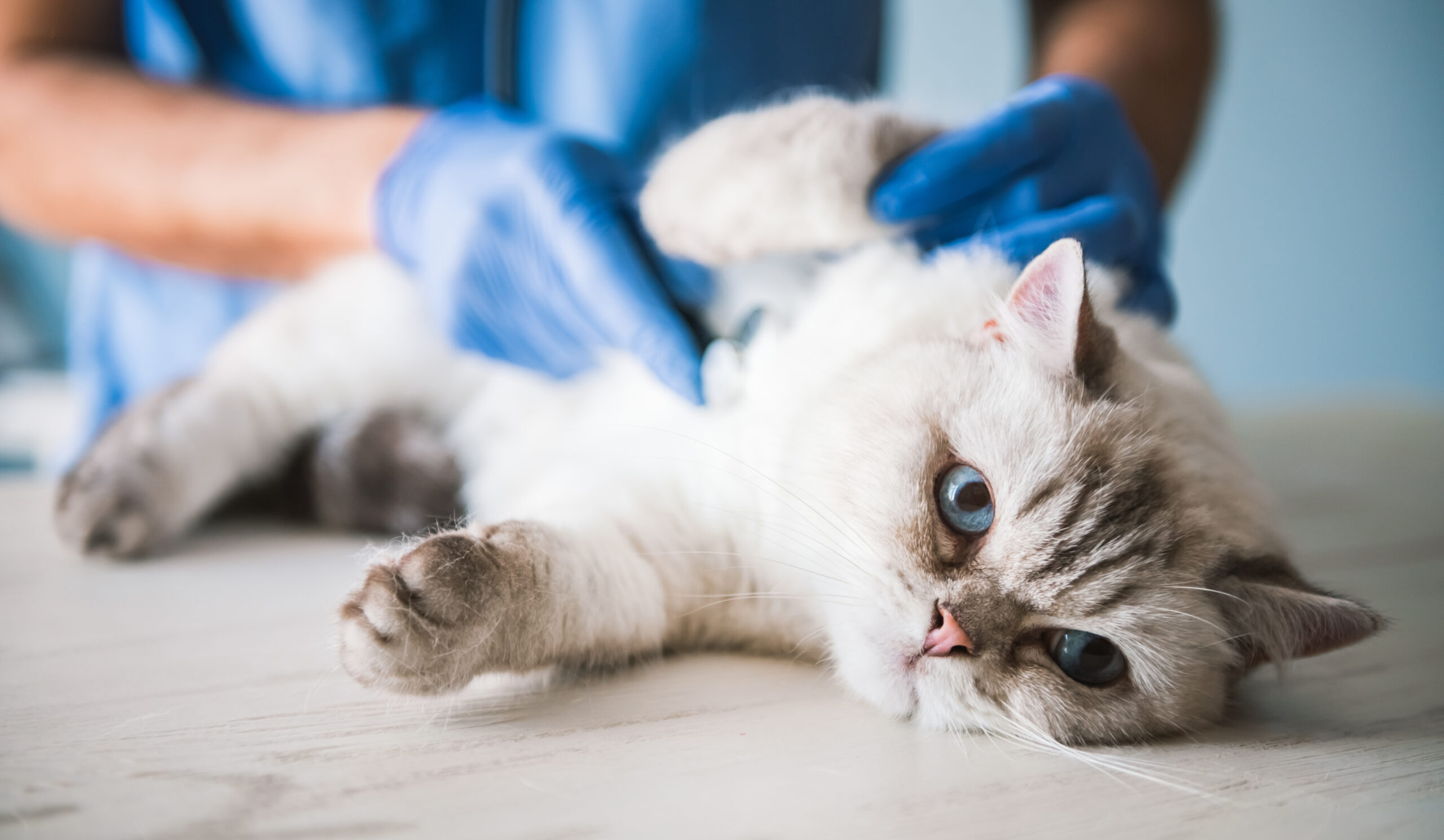New Research Study Focuses on Mysterious Eye Disease in Dogs

It can happen quickly. Seemingly overnight in some cases. Your middle-aged dog was fine and, all of a sudden, she is bumping into objects and appears disoriented. A visit to the veterinarian and several tests may result in a diagnosis of SARDS—Sudden Acquired Retinal Degeneration Syndrome.
SARDS is an ocular disease that damages the rods and cones within the retina of an affected dog’s eyes. The retina then degenerates and the result is complete blindness, as visual input no longer is transported to the brain via the optic nerve. Why this happens and how to prevent it are questions Freya Mowat would like to answer.
Dr. Mowat, who is an assistant professor of ophthalmology at North Carolina State University’s College of Veterinary Medicine, is initiating a two-year research study into the mysterious process that makes SARDS such a devastating disease for dogs and their owners. Recruitment of study participants is underway.
Here is what is currently known about SARDS:
- It is a common cause of irreversible blindness, affecting predominantly middle-aged female dogs;
- Any dog is susceptible, but breeds particularly predisposed to the disease are Dachshund, Miniature Schnauzer, Pug, Brittany Spaniel, Maltese, Bichon Frise, and mixed-breed dogs;
- Affected dogs often have signs such as increased appetite, weight gain, dramatic increased thirst and urination, and in some cases a decrease in hearing and smell;
- Owners may notice a degree of visual aberration for a few days to, in some cases, a few months before complete vision loss is apparent or blindness may happen within 24 hours.
“Veterinarians have diagnosed Sudden Acquired Retinal Degeneration Syndrome for more than three decades but we still don’t understand it well enough to try to develop effective treatments,” says Mowat. “Several theories have been advanced but without definitive results. How can we treat SARDS if we don’t understand what causes it?”

Mowat wants to investigate the possible role the dog’s immune system and hormones play in the disease. Her study, “Defining the effect of immune-mediated damage to the pineal gland in the etiopathogenesis of Sudden Acquired Retinal Degeneration Syndrome in dogs,” is funded by a $30,000 grant from the American College of Veterinary Ophthalmologists Vision for Animals Foundation.
Her thinking is that the dog’s immune system attacks its own body tissue—the eye and parts of the brain that control hormone release. The study seeks to better understand the underlying mechanisms of the ocular disease by examining the presence of self-antibodies to the pineal gland and its function in animals with SARDS.
“We plan to look for signs of autoimmunity in the blood, and connect that with blood levels of melatonin—a hormone made in the brain,” says Mowat. “If melatonin levels are low in dogs with the disease, we could develop tools to more quickly diagnose the condition so patients that still have some vision can begin treatment at an earlier stage. And knowing the immune system is involved in SARDS will focus our efforts on finding a way of changing the immune system to control the attack, perhaps leading to the development of an effective treatment.
The current diagnostic process involves blood and urine profile, blood pressure readings, and a test of retinal function known as an electroretinogram (ERG) performed by a veterinary ophthalmologist. The ERG is crucial because it distinguishes the disease from other common causes of blindness, including central nervous system disorders of the optic nerve or the brain. SARDS is peculiar in that the retina can look relatively normal yet there is significant retinal damage present.
In the NC State study, Mowat and her team will recruit and compare dogs with SARDS to dogs with two similar diseases—progressive retinal atrophy, which is a slowly developing inherited form of blindness, and the endocrine disease Cushing’s disease or pituitary-dependent hyperadrenocorticism, whose sufferers do not routinely experience visual dysfunction.
Additional background
American College of Veterinary Ophthalmologists Vision for Animals Foundation https://www.visionforanimals.org/about-us/


